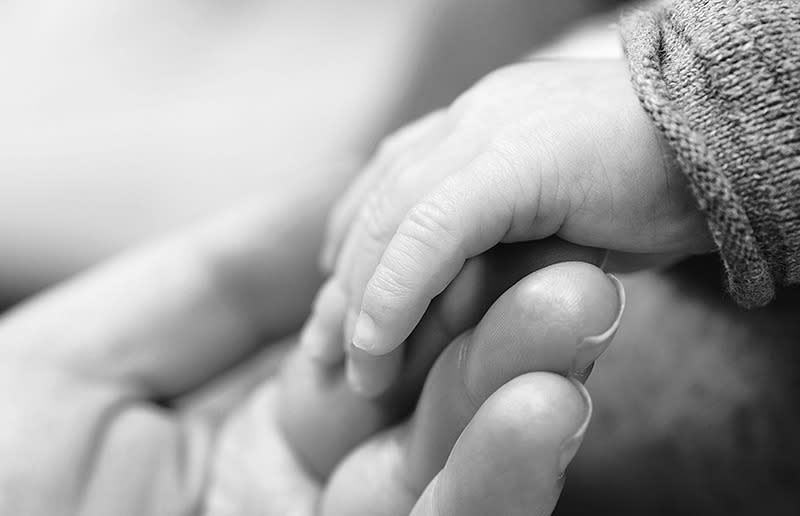A Baby Is Born With Three Biological Parents

This procedure is not legal in the United States. (Photo: FreeProd/Alamy Stock Photo)
It’s a pretty well-known fact that it takes two people to make a baby. But a 5-month-old is blowing the lid off that concept: He has three biological parents.
Scientists made the announcement after using DNA from three people to create a healthy baby, named Abrahim, in Mexico. According to The Telegraph, the baby was born to a couple from Jordan who has been trying to have children for nearly 20 years.
The couple decided to have a three-parent baby for a serious medical reasons: The baby’s mom carries genes for Leigh syndrome, a fatal disorder that impacts the developing nervous system and caused the death of their first two children.
The baby was conceived using an egg with nuclear DNA (DNA from inside the nucleus of a cell) from his mother and father, and mitochondrial DNA (which provides energy for cells) from an anonymous female donor.
“Mitochondrial transfer is used when defective mitochondrial DNA can prevent the birth of a healthy baby,” Dr. Edward Marut, a fertility specialist at Fertility Centers of Illinois, tells Yahoo Beauty. “The mother whose eggs are used retains her main genetic material (chromosomes) in the nucleus of her egg, but mitochondria, the ‘power plants’ of the cell, are transferred from a healthy egg into the egg with abnormal mitochondria. The abnormal mitochondria are generally removed so the baby is normal.”
According to the New Scientist, that’s just what happened. Doctors removed the nucleus from one of the mother’s eggs and inserted it into a donor egg that had had its own nucleus removed. The egg was then fertilized with the father’s sperm.
The technique used to create baby Abrahim, which allows parents with rare genetic mutations to have healthy children, is still controversial. It has only been legally approved in the United Kingdom. (Abrahim was conceived in Mexico with the help of American doctors, thanks to Mexico’s lax fertility laws), but embryologists tell the New Scientist that the baby’s birth will encourage other countries to follow suit.
Dr. Jane Frederick, a board-certified reproductive endocrinologist at HRC Fertility, tells Yahoo Beauty that the birth is “encouraging but still experimental.” “This controversial technique of mitochondrial transfer has been attempted in the past with very little success,” she said. “The safety of this method needs to be studied before it can be a standard of care.”
Dr. Carolyn Alexander, a fertility expert at Southern California Reproductive Center, agrees. “The ability to overcome devastating mitochondrial disorders involves exquisite science and carries with it a heavy ethical responsibility,” she tells Yahoo Beauty. “The chances that the affected mitochondria can also get passed is of concern to me — when we remove the nucleus, you can accidentally take bad mitochondria with it. Subsequently, you can get good mitochondria from the donor and bad from the mom that were linked to the nucleus.”
Alexander says Abrahim’s birth has “powerful ramifications,” that could influence whether three-parent babies will become more common. “We must be vigilant to monitor the child’s well-being and developmental milestones,” she says. “Future directions should be performed under regulations.”
Let’s keep in touch! Follow Yahoo Beauty on Facebook, Twitter, Instagram, and Pinterest.
